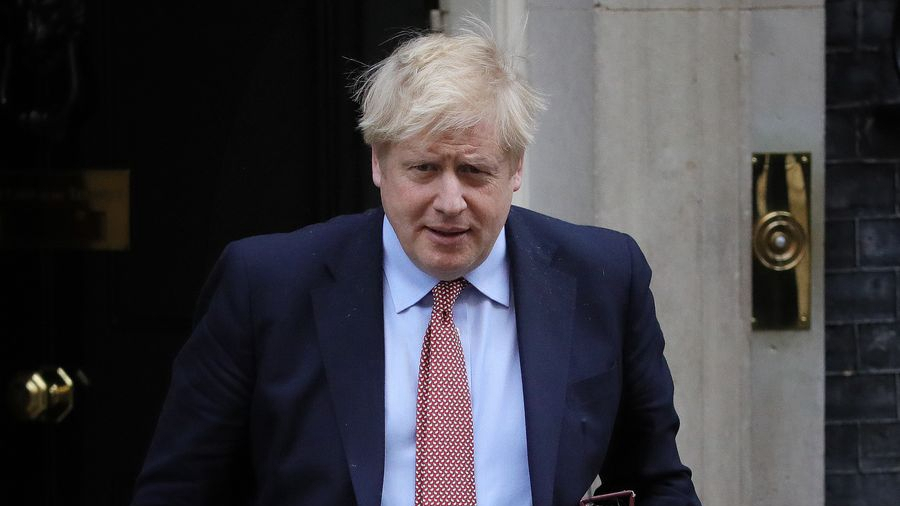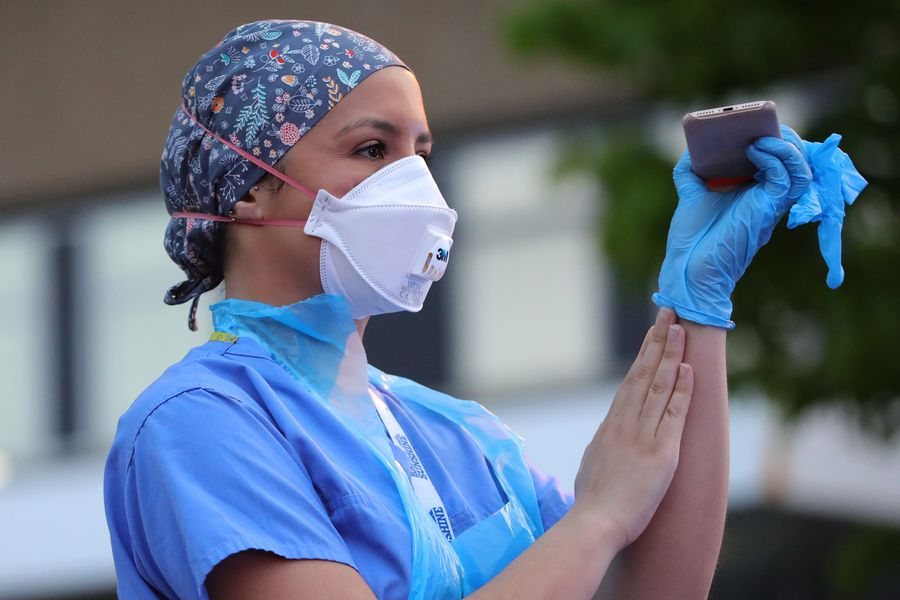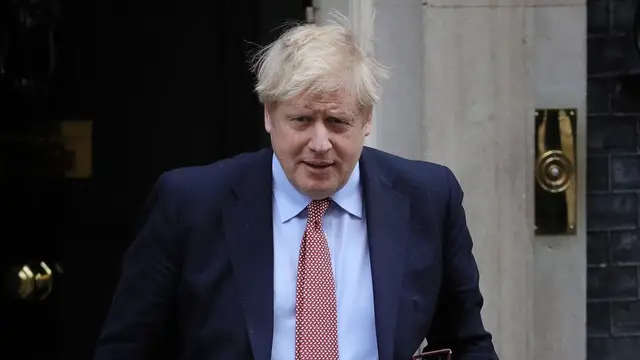
British Prime Minster Boris Johnson leaves 10 Downing Street for Prime Minister's Questions, in London, Britain, March 25, 2020. /Xinhua
British Prime Minister Boris Johnson is all set to assume official duties from next week after recovering from COVID-19. His return, however, coincides with his administration facing a slew of criticism over the handling of the COVID-19 pandemic domestically, which the opposition to the Conservative Party regards as a product of gross negligence, denial, and incompetence.
As the number of deaths registered in the UK close in on 19,000 and public sector borrowing is all set to reach 14 percent of gross domestic product this year, it can be safely said that the United Kingdom's predicament with the current administration is less about the pernicious effects of the pandemic and more about the policies which have been pursued.
Currently, the Johnson administration is struggling to come up with a comprehensive exit strategy as public borrowing continues to soar to record levels. An exit strategy to resuscitate the 5th largest economy in the world while simultaneously providing blanket coverage to all British citizens is required to ensure that pressing issues of a dilapidated health infrastructure and compromised capacity are addressed.
So far, stringent measures which have been implemented have not been complimented with a decline in death rates, shortages of Personal Protective Equipment or testing kits. The mantra of too little, too late continues to recur from an opposition which has berated the government for reacting too slowly to the outbreak.
The soaring debt burden currently amounts to over 2.5 trillion U.S. dollars with the CIPS Flash UK Composite Purchasing Manager's Index (PMI) falling to a record low of 12.9 from 36.0 in March. These are times which mandate greater precision as the push of augmenting the current EU budget by Germany the post-Brexit environment clearly demonstrates.
Globally, the effects of laxity in terms of adopting comprehensive measures have proven to be disastrous and the lack of contingency planning on the economic front compounds the quagmire that the UK solely confronts.
On the NHS and testing, the Johnson administration continues to face mounting pressure. Oliver Harvey, the head of the Brexit Research and UK Macro strategy at the Deutsche Bank, has stated that the UK lags behind almost any medium to large economy when it comes to comprehensive testing.
Harvey's assessment aside, the credibility of the tests being conducted is equally questionable with an internal PHE document suggesting that there have been serious supply chain issues impeding the UK's ability to provide comprehensive testing.
Supply chain issues are solely the responsibility of the government and the provision of comprehensive testing is the key towards increased accountability and transparency over the extent to the crisis, the lack of which, results in infections spiraling beyond manageable proportions.

A staff member of the National Health Service (NHS) claps outside Royal Berkshire Hospital during the weekly "Clap for Our Carers" campaign in Reading, Britain, April 23, 2020. /Xinhua
Issues continue to persist on the personal protective equipment front as well. Two British doctors, Meenal Viz and Nishant Joshi, have recently launched a legal challenge against the Johnson administration over shortages in protective kits being provided as well as lack of guidelines on the usage of protective equipment.
The aggrieved doctors have also mentioned how safety protocols are constantly changing "without rhyme or reason", and how the guidance provided is also not in line with WHO standards.
Protection of healthcare workers, which are on the frontlines of dealing with the pandemic, is a global responsibility being implemented by all sovereign states. The United Kingdom currently confronts the dual issue of provision of PPE's and comprehensive testing.
On the subject of social distancing, which acts as the key to flattening the curve of infections globally, the Johnson administration's response has also been timid and lackadaisical.
The constant request for symptomatic individuals to stay at home, blanket bans on study trips abroad or asking elderly citizens to refrain from traveling on cruise ships are measures which are cosmetic, hollow and fail to deal with the wider issue of testing, PPE's and initiatives undertaken to reverse the economic downslide of the British economy.
This response can be contrasted with measures taken by the tiny island of Saint Lucia in the Caribbean, which secured 100 percent recovery of COVID-19 patients on its shores and has received positive coverage. Its success can be attributed to the modification of testing strategies, school closures across the island, national zoning of localities, and instituting 24-hour curfews.
The current administration in London, however, has adopted approaches which belie the populist rhetoric of leaders, such as Boris Johnson, more as compared to tangible gains while fighting COVID-19.
The fact remains that tracking and tracing every suspected case is integral towards an increased understanding of the exposure of the virus and protection of healthcare workers which are on the frontlines of dealing with the pandemic is a global responsibility.
As of now, western nations with populist leaders at the forefront of policy making have often been quick to castigate countries, such as China, over perceived lack of transparency and denial of facts. However, as the United Kingdom's Cabinet Office Minister's refusal to issue a rebuttal of how Prime Minister Johnson had missed five meetings of the emergency Cobra Committee clearly demonstrates, the Johnson administration should not be exempt from criticism.
The detailed expose in The Sunday Times is a glaring example of what impends and as the British Premier returns to assume charge of office, doubts continue to remain over whether the current predicament of healthcare workers at the NHS or the spike in death rates will change.
(CGTN)
 简体中文
简体中文





